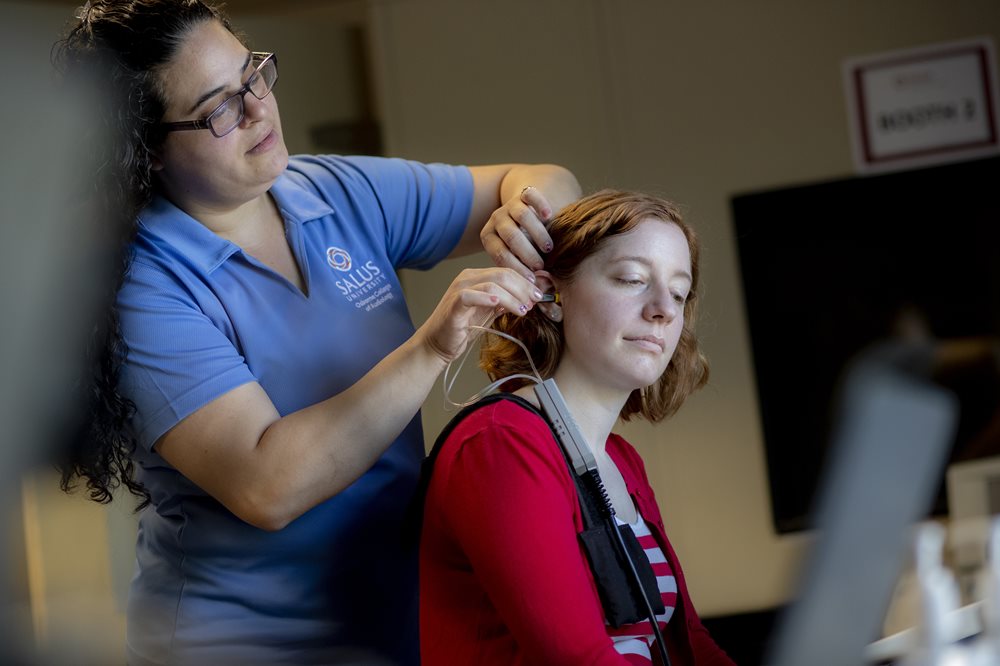Hearing Aids – Did You Know?
For the millions of Americans who have hearing loss, hearing aids are usually the best option to help correct untreated hearing loss and help individuals resume a high quality of life. While it can be hard to accept the need for hearing aids, going without them increases an individual's risk for social and medical problems, including isolation, cognitive decline and depression. Many types and styles are available to suit every preference and lifestyle.
Below are some interesting facts about hearing aids.
 Hearing aids are not just for the elderly
Hearing aids are not just for the elderly
Age is the strongest predictor of hearing loss, but hearing loss affects all ages, even children. For children of any age, untreated hearing loss can lead to developmental delays and difficulties with speech, language and socialization. Beyond childhood and adolescence, hearing loss may affect young and middle-age adults during their working years. Consulting with an audiologist can help address hearing problems early, to minimize the impact on school, work and overall quality of life.
Hearing aids do not cure hearing loss
While eyeglasses may be able to perfectly restore your eyesight, no treatment for hearing loss will result in perfect hearing. Hearing aids are used to amplify sound so those with certain degrees of hearing loss can listen, communicate and participate in daily activities. Hearing aids do not “cure” hearing loss, but can substantially improve the wearer’s ability to interact with the world around them. While hearing aids do not make hearing “perfect” again, they can improve quality of life because they allow people to re-engage in the activities they enjoy.
Hearing aids may help even with a mild hearing loss
Untreated hearing loss, even mild, affects the brain's ability to remember common everyday sounds. If you find yourself struggling to understand what people are saying in situations where you previously had little to no trouble, you may be experiencing mild hearing loss that could be addressed with hearing aids. Everyone's needs are different when it comes to hearing loss but an expert audiologist at the Pennsylvania Ear Institute will be able to determine whether or not hearing aids are necessary for those with mild hearing loss.
 Having two hearing aids may give you an advantage
Having two hearing aids may give you an advantage
Mild hearing loss in one ear and moderate or severe in the other may warrant two hearing aids. If someone talks into the ear without a hearing aid, their voice may sound softer compared to any noise in the background and your brain may have trouble focusing on the voice. So, two is usually better than one.
Today's hearing aids are virtually invisible
Unfortunately, hearing aids aren't yet as widely accepted as glasses. But, today's hearing aid technologies are virtually invisible. They come in multiple colors to match your hair or skin type. There are even tiny hearing aids that fit in your ear canal. The different fits have pros and cons, so an audiologist will help you determine which fit works best for you.
 Hearing aids don't affect your lifestyle
Hearing aids don't affect your lifestyle
Today's hearing technologies are suitable for all lifestyles. Modern hearing aids can work seamlessly with high-tech devices like smartphones and tablets. Wireless technology allows certain types of hearing aids to connect directly to phones, tablets, TVs or other audio devices. An audiologist can recommend certain products for connecting to your electronic devices.
Hearing loss can be managed and treated. The earlier you address the symptoms of hearing loss, the more likely you are to avoid irreversible damage.
The Pennsylvania Ear Institute (PEI) offers a variety of services including comprehensive hearing evaluations, hearing aid fitting and repair. For more information on PEI’s hearing aid services, call 215.780.3180.